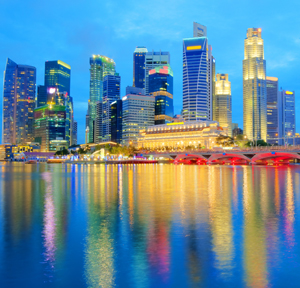Strategy
EDITORIAL COMMENT: If Formula One Leaves Singapore, What Will Wealth Managers Say?

A report claiming that there is doubt on Singapore's future staging of Formula One motor racing could prompt some hard questions from the wealth management industry.
It is inevitable as the F1 motor racing season comes to an end that speculation mills go into gear (forgive the lame pun) about which venues might be hosting the thrills and spills of racing and which might find themselves on the hard shoulder.
It is reported by Reuters that the boss of Formula One, Bernie Ecclestone, has cast doubt on whether Singapore wants to host the Grand Prix any longer after its existing deal runs out in 2017. The Singapore race costs S$150 million ($105.04 million) a year; some 60 per cent of that cost is picked up by the government of the city-state, the report said.
The notoriously blunt Ecclestone, known for trying to drive a hard bargain over location of races, reportedly said: "Look at what we have done for Singapore. Yes, the Grand Prix has cost Singapore a lot of money, but we've also given them a lot of money. Singapore was suddenly more than just an airport to fly to or from somewhere. Now they believe they have reached their goal and they do not want a Grand Prix anymore."
Ouch. Of course, Singapore was more than just a hop-off point for air travellers long before racing teams showed up; in fact, the way that the jurisdiction has run a tight financial ship over the years during prosperous and tough times explains to some degree why it is one of the richest places, on some metrics, on the planet. That F1 is very expensive to hold in a city such as Singapore cannot be doubted; modern safety standards also require considerable marshalling and preparation. A question that Singapore’s government, mindful of its budget, may be asking itself is whether the cost is any longer justifying the expense.
If the event does leave Singapore, it might be seen as a setback for Singapore’s image as a global, “happening” place. The former UK colony, which marked its 50th anniversary as an independent nation last year, is already feeling the headwinds of an Indonesian tax amnesty and a crackdown by the city-state’s regulator against alleged dirty Malaysian money (see here). The F1 race is one of those signature "global events" that allows a place to craft a newer kind of image. Young people - and the next generation of wealth management clients - might be upset if such a jamboree is not held nearby any more.
An ironic twist to the tale - if it proves correct – is that the world’s largest wealth manager, UBS, is global sponsor to F1, and, of course, Singapore is a major hub for UBS’s wealth management business in Southeast Asia. This news organisation has asked UBS about the issue but it declined to comment.
F1 and motor racing have for a long time been associated to some extent with banking. Besides UBS, there is the case, for example, of Copenhagen-headquartered Saxo Bank, which sponsors one of the teams. Classic racing car events have drawn support from EFG and Arbuthnot Latham. On the more futuristic side, Julius Baer, the Swiss bank, is the main sponsor of the Formula E series (all-electric cars). Banks can and do see how backing these events allows them to convey a certain image, be it around speed, competitiveness, craftsmanship or the cachet of a glamorous sport. Another example, from yacht racing, is that of Coutts, which is sponsor of one of the America’s Cup yacht race teams (Land Rover BAR, the team of Ben Ainslie).
And the economics of global sponsorship - this doesn't come cheap - mean that sponsors will be mindful of where certain events take place to get most exposure for their types of brand. A departure from a financial centre such as Singapore, and a possible reduction in F1’s Asia profile, may not be popular with UBS executives mulling the financial case for or against such deals. Of course, Ecclestone may have simply fired an early starting pistol in a new scrap over staging rights. He has done it before and, to some extent, such speculation is as much a part of motor racing these days as engine noise, burnt rubber and over-excited TV commentators.
